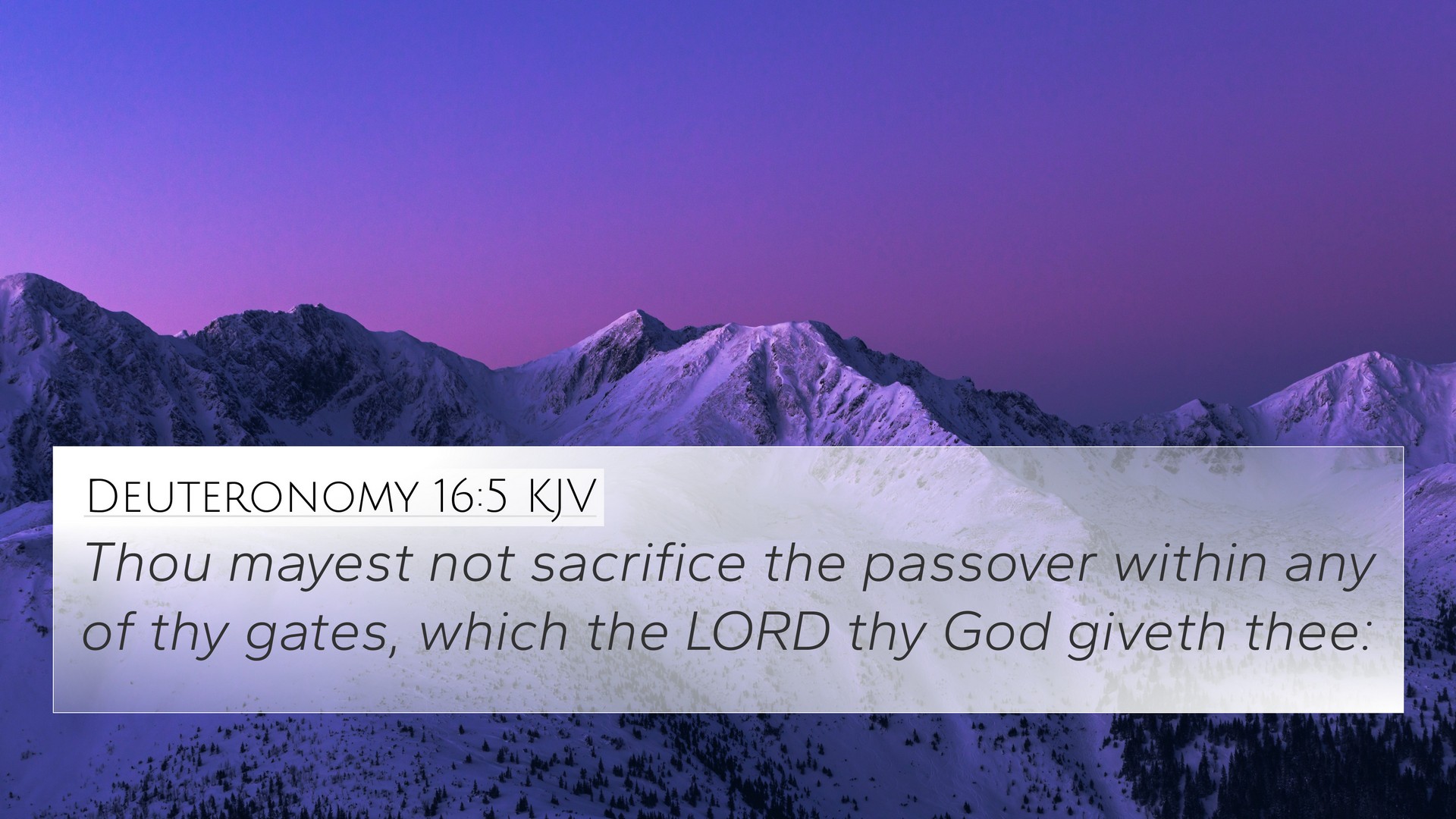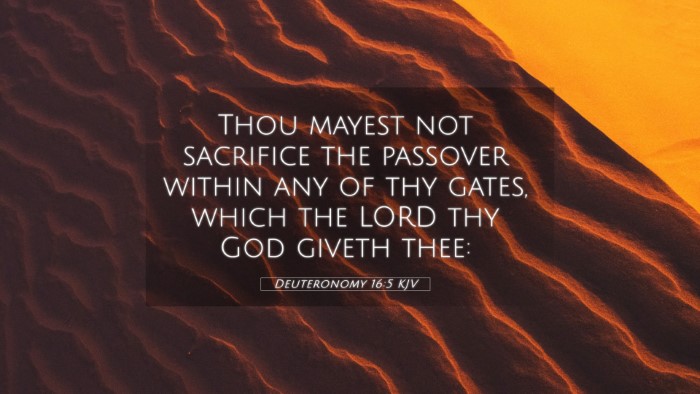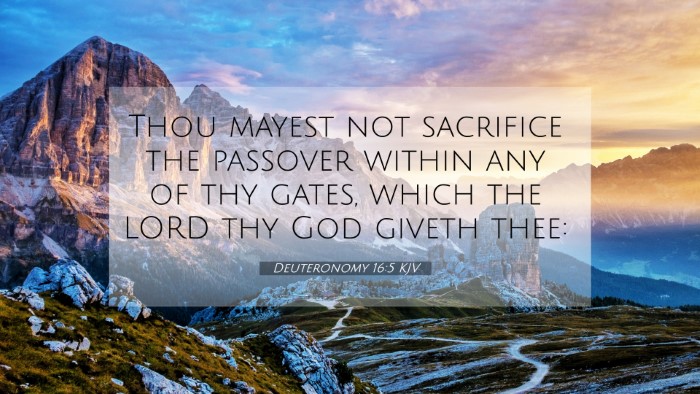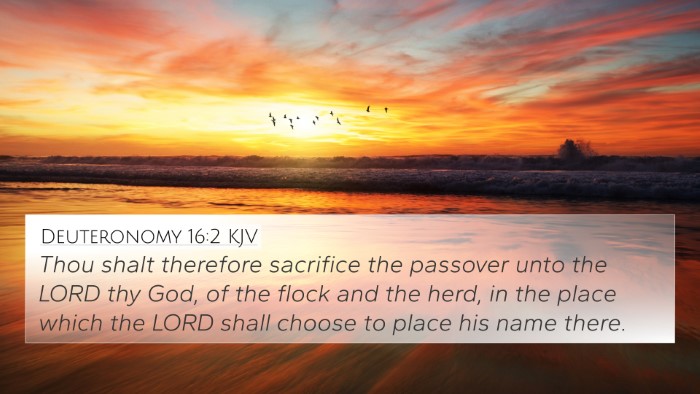Understanding Deuteronomy 16:5
Verse: "You may not sacrifice the Passover within any of your gates which the Lord your God gives you."
Summary of Meaning
This verse emphasizes the importance of the sacredness of the Passover sacrifice, highlighting the requirement that it must be performed in a designated place ordained by God. This directive underlines a central theme in the Book of Deuteronomy which is about maintaining purity and reverence in worship.
Insider Perspectives
- Matthew Henry: He expounds on the notion of divine appointment. The Passover is not just a ritual but a commanded act of remembrance, integral to the Jewish faith. It signifies God's deliverance and should be performed in a holy context, enhancing communal worship.
- Albert Barnes: Barnes highlights that the Passover must be observed in a unified manner; the congregation is directed to come together in a specified locale. This teaches about the nature of worship – it should be collective and match God’s criteria for holiness.
- Adam Clarke: Clarke suggests this verse illustrates God's authority in worship practices. He emphasizes that God stipulates locations for sacrifices to prevent idolatry and ensure that worship is done properly.
Thematic Connections
Deuteronomy 16:5 associates with various significant themes and concepts within the Scriptures, including:
- Worship Locations: The necessity of a designated worship place, seen in 1 Kings 9:3 and 2 Chronicles 7:12.
- Sacramental Beliefs: Emphasis on the Passover sacrifice, reflected in Exodus 12:6-7.
- Community Worship: The importance of coming together as a community for worship (Psalm 122:1).
- Divine Commandments: The Lord's authority in worship practices (John 4:24).
- Historical Remembrance: The role of Passover in remembering God's deliverance (Exodus 13:8).
- Idolatry Caution: Future warnings against worshipping in unauthorized places (Deuteronomy 12:4).
Cross-References
Deuteronomy 16:5 is related to several other biblical texts, creating a comprehensive web of inter-Biblical dialogue:
- Exodus 12:3: The institution of the Passover.
- Leviticus 23:5: Time and place of the Passover sacrifice.
- 2 Chronicles 30:1: King Hezekiah calling the people to observe Passover.
- Matthew 26:17-19: Jesus observes the Passover with his disciples.
- Luke 22:15: Jesus institutes the Lord's Supper during Passover.
- Hebrews 11:28: By faith, the Passover was observed as commanded.
- 1 Corinthians 5:7: Christ as our Passover sacrificed for us.
Conclusion
In summary, Deuteronomy 16:5 serves as a reminder of the importance of worshiping in the manner prescribed by God, fostering a strong understanding of community, sacrifice, and devotion. The interconnectedness of this verse with others highlights a rich tradition of worship that transcends time.
Tools for Cross-Referencing
For those seeking to delve deeper into the connections between Bible verses, consider utilizing:
- Bible concordances
- Cross-reference Bible study guides
- Comprehensive Bible cross-reference materials
- Online Bible study resources




